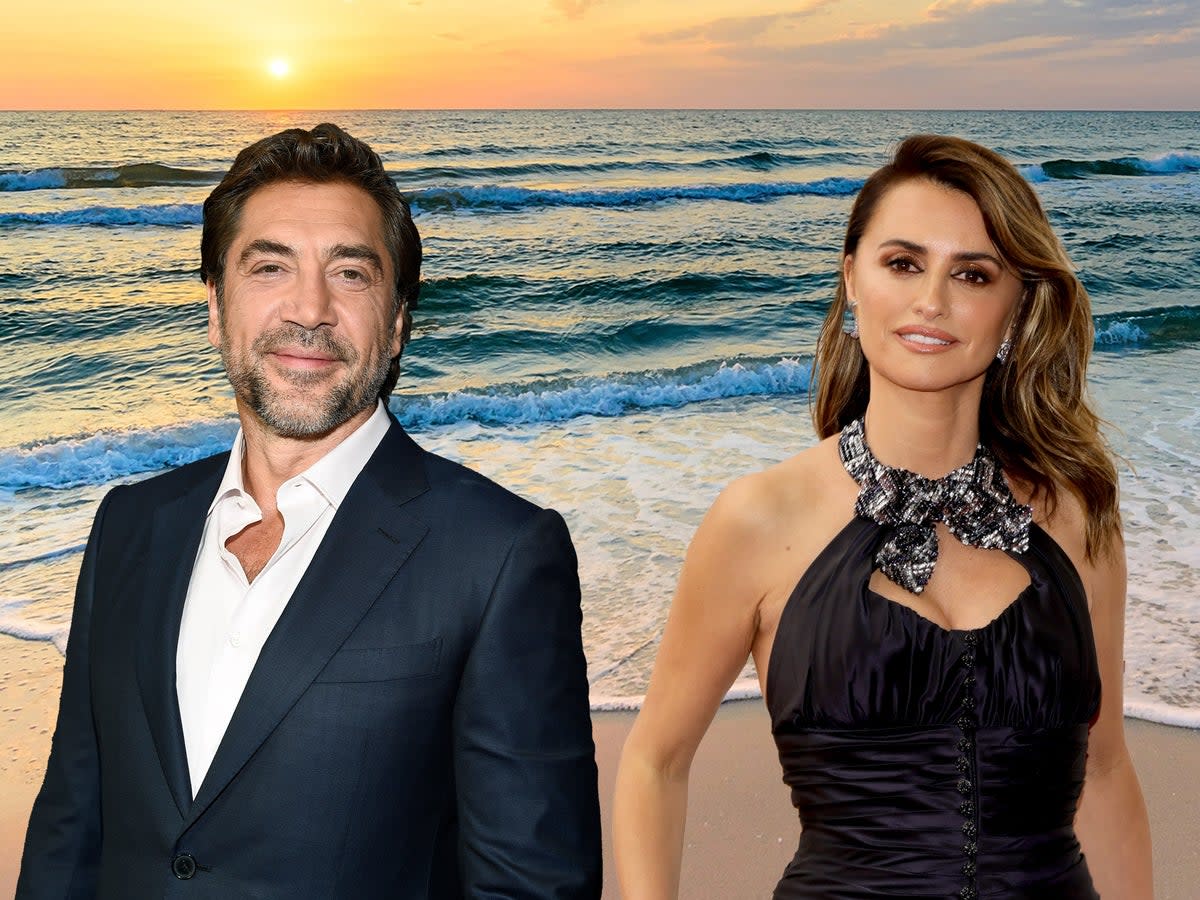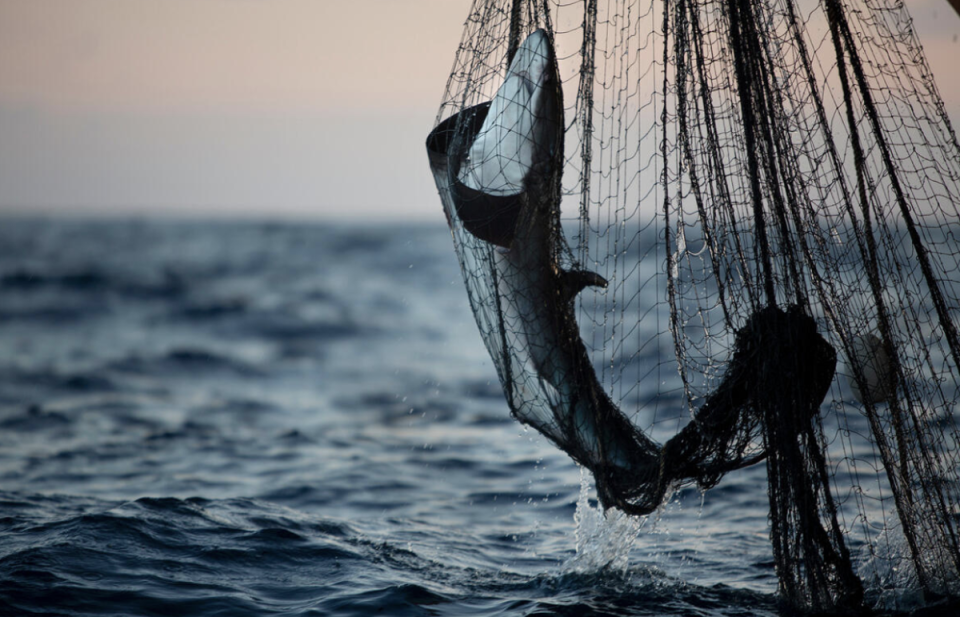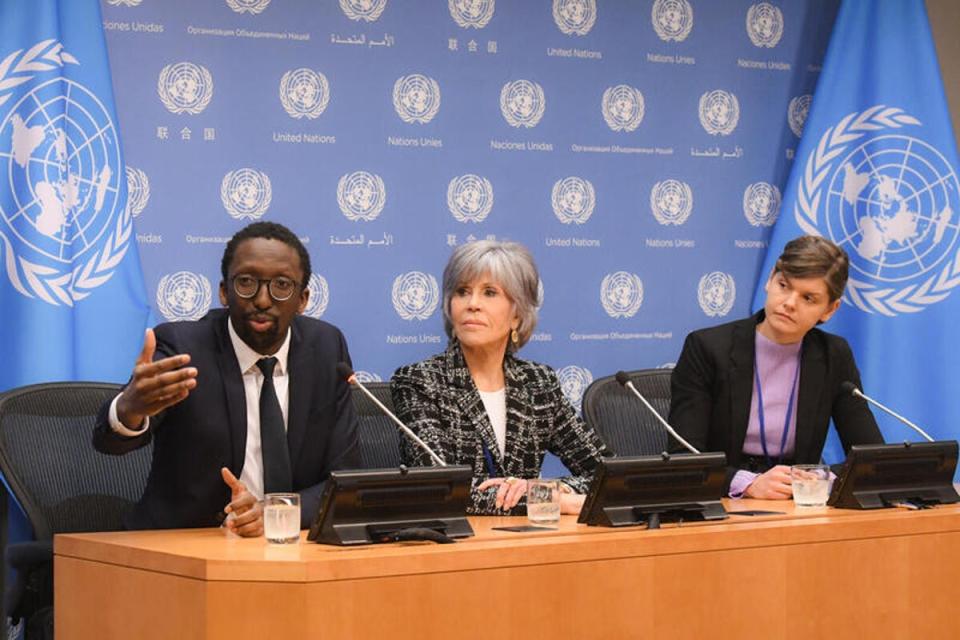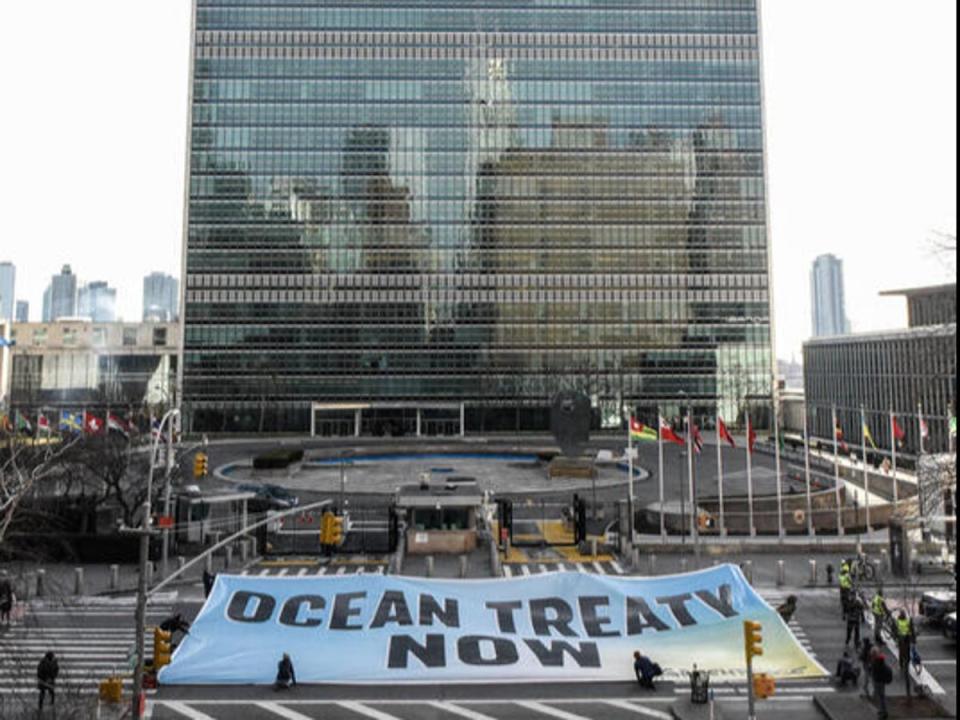Penélope Cruz, Javier Bardem lead A-listers’ call for treaty to save global ocean as UN talks stall

A cadre of Hollywood stars and leading environmentalists have called on world leaders to finalise a long-overdue, legally-binding treaty to save the global ocean.
Penelope Cruz, Javier Bardem, Stephen Fry and Bonnie Wright are among the A-list stars who signed the open letter, shared exclusively with The Independent.
“The oceans support all life on Earth. This week, you will decide their fate. You must finalise a strong Global Ocean Treaty here and now, at this final round of negotiations at the United Nations, or your grand promises and ambitious targets will be meaningless. We are hopeful, because you can do it if you choose to,” it reads.
“Billions of people rely on the oceans for their livelihoods, for their sustenance, for their existence.
“Your legacy is at stake. You could be remembered as the generation of leaders who protected the oceans. Or you could be the leaders who let greed stop you from doing what’s right.”
Other signatories include the explorer Ranulph Fiennes; environmentalists and broadcasters Hugh Fearnley-Whittingstall and Chris Packham; and the fashion designer Anya Hindmarch.
Only about 1 per cent of the so-called “high seas” – the two-thirds of international waters not bound to any country, and open to shipping, fishing, and research for all – are currently protected.
But the ocean, which covers 70 per cent of Earth and provides about 50 per cent of the planet’s oxygen, is being decimated by the climate crisis, plastic pollution, heavy industry and overfishing.
The ocean has absorbed about 90 per cent of excess heat trapped by greenhouse gas emissions from burning fossil fuels and the higher temperatures are impacting virtually all marine life.

On top of this, about a rubbish truck-worth of plastic is dumped into the ocean every minute. This plastic breaks down into tiny particles, and travels up the food chain where it ends up on our plates and in the air we breathe.
And of increasing concern is deep-sea mining, where commercial companies scrape the ocean floor to find minerals for new technologies. The technique can devastate marine ecosystems and release “blue carbon” that has been stored in the sea bed for millennia.
A UN Ocean Treaty would establish a system to create “marine protected areas” – safeguarding diverse species and requiring environmental assessments for heavy industry.
Without the treaty, there is no legal route to protecting large areas of international waters, environmentalists warn.
It also will be nigh on impossible to keep the promise made by dozens of countries to protect 30 per cent of oceans by 2030. Scientists say that this is minimum needed to allow the oceans to heal from years of misuse.

The fifth round of treaty negotiations are underway at UN headquarters in New York. Nearly two decades of talks have failed to produce an agreement, and the focus is on hammering out tricky issues like what marine areas should be protected, and who will enforce rules.
There are fears that the latest summit may also end in failure after negotiations were crawling along as they entered the second week. Major powers like the UK, US and Europe were quibbling over small points, observers reported.
Dr Laura Meller, an oceans campaigner with Greenpeace Nordic, also called on China to “urgently reimagine its role at these negotiations” and described it as being a “difficult party”.
“China has an opportunity to transform global ocean governance and broker, instead of break, a landmark deal on this new Ocean Treaty,” Dr Meller said, in a statement to The Independent.
There were glimmers of hope after Pew Charitable Trusts’ ocean governance team reported in an email that some countries with previously muted involvement in the talks, were now pushing for an ambitious treaty including the Philippines and some others in southeast Asia. Countries whose economies rely heavily on the ocean, particularly islands in the Pacific and Caribbean, are particularly vulnerable to impacts from its ongoing destruction.
A major sticking point is how to finance a new treaty, and turn its words into meaningful, real-world actions. Another issue being hashed out is marine genetic resources – who would benefit financially, for example, if a mineral found at sea turns out to have amazing capabilities, such as for a much-needed vaccine.
At the beginning of the summit last week, the actor and activist Jane Fonda delivered 5.5 million signatures from 157 countries demanding a strong treaty to Rena Lee, president of the UN negotiations.
“The ocean is our ally. Let us love and respect it,” she said.

Read the letter in full below
Dear Leaders,
The oceans support all life on Earth. This week, you will decide their fate. You must finalise a strong Global Ocean Treaty here and now, at this final round of negotiations at the United Nations, or your grand promises and ambitious targets will be meaningless. We are hopeful, because you can do it if you choose to.
Just two months ago, your governments agreed to protect 30 per cent of the oceans by 2030, the 30x30 target. This target is the absolute minimum necessary to give the oceans a chance to recover, but it is already in jeopardy.
Currently, it’s impossible to properly protect areas in international waters, meaning it’s practically impossible to deliver 30x30. That’s why we need a Global Ocean Treaty.
A strong Treaty would provide a legal mechanism by which vast areas of international waters can be protected in ocean sanctuaries.
The last round of negotiations on the Treaty failed because countries in the Global North offered too little, too late. These same countries promised a Treaty in 2022. They failed, and they must not be complacent again.
If these Global North governments, including the UK, US, Canada and the EU, truly want to be the ocean champions they claim to be, they must do everything possible to find compromises, break impasses and get a Treaty over the line at these talks.
Leaders, delegates, please don’t lose sight of what’s important while you’re in those windowless negotiating chambers at the United Nations.
Billions of people rely on the oceans for their livelihoods, for their sustenance, for their existence.
Your legacy is at stake. You could be remembered as the generation of leaders who protected the oceans. Or you could be the leaders who let greed stop you from doing what’s right.
The decision is yours. The world is watching. Protect the oceans, before it’s too late.
Signed,
Alison Sudol, Amanda de Godoi, Anya Hindmarch, Bonnie Wright, Chris Packham, Damian Hardung, David de Rothschild, David Gyasi, Fearne Cotton, Hugh Fearnley-Whittingstall, Moritz Jahn, Ranulph Fiennes, Robert Lindsay, Stephen Fry, Penélope Cruz, Javier bardem, Carlos Bardem Úrsula Corberó, Pedro Alonso, Alba Flores, Elena Anaya, Jon Kortajarena Txetxu Altubez, Lucía Jiménez, Ksenia Guinea, Marta Belenguer, Rebeca Jiménez, Mercedes Ferrer, Javier Reboredo, Virginia Maestro, Cecilia Gessa, Dani Guzman


